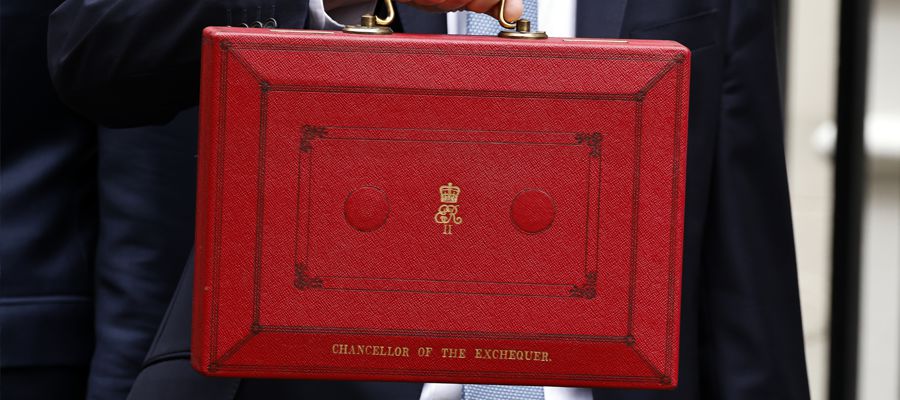Budget – The Key Points
- Thursday, November 1, 2018
 Tax Thresholds & Allowances
Tax Thresholds & Allowances
The Budget announced the following thresholds and allowances will take effect from the 2019/20 tax year. The government had previously planned to increase the personal allowance and higher rate thresholds to these levels by April 2020 so the increases have occurred a year earlier than expected.
Income Tax
Personal allowance will rise to £12,500
Higher rate threshold will increase to £50,000
Starting rate for savings income will remain unchanged at £5,000
Capital Gains Tax
The Annual Exempt Amount for capital gains will increase to £12,000 for individuals and £6,000 for trusts.
Inheritance Tax
The nil rate band remains unchanged at £325,000
The residence nil rate band will increase to £150,000 as previously planned
This is good news for the majority of individuals. Those who were planning to crystallise either capital or chargeable gains may decide to postpone triggering gains until the new tax year to benefit from a lower tax rate, although this will also depend on the reason for encashing their investments in the first place.
Anyone who deferred their state pension under the old rules may also decide to wait until the new tax year to draw the lump sum as the full amount is taxed at your highest income tax rate rather than being added to your income and taxed in full.
Pensions
Standard Lifetime Allowance
As expected, the standard Lifetime Allowance for pensions will change in line with the consumer prices index (CPI) increase for 2019/20 from £1,030,000 to £1,055,000 from 06/04/2019.
Banning Pensions Cold Calling
As soon as possible, the government will ban pensions cold calling or unsolicited direct marketing calls in relation to pensions products/services. They will prohibit cold calling in relation to pensions unless the caller is authorised by the Financial Conduct Authority (FCA), or a trustee/manager of an occupational or personal pension scheme.
The ban covers direct marketing in relation to pensions and is not limited to calls in relation to pension transfers. Use of email and text messaging for direct marketing purposes is already restricted. The ban will be enforced by the Information Commissioner’s Office (ICO) and they will publish industry guidance later this year.
The Government is committed to introducing legislation to limit the statutory right to a pension transfer. This is a measure aimed at preventing pension savings from being transferred to fraudulent pension schemes, and to help protect members at the crucial point where a scammer has persuaded them to transfer.
Public Service Pensions
Following reforms to public service pensions in 2015, further changes are likely from 2019/20 to make pension benefits more generous for public servants, including teachers, police, armed forces and NHS staff.
The Budget confirms a reduction of the discount rate for calculating employer contributions in unfunded public service pension schemes. The valuations indicate that there will be additional costs to employers in providing public service pensions over the long term.
The Government is trying to ensure that these costs do not jeopardise the delivery of frontline public services or put undue pressure on public employers, particularly for the National Health Service (NHS) and state schools.
The Spending Review next year will settle the funding for costs beyond 2019/20 arising from the valuations.
Capital Gains Tax
Private Residence Relief
Currently, the relief can be claimed by individuals who let out a property that is, or has in the past been, their main residence. From April 2020, the government will reform lettings relief so that it is only available to individuals in shared occupancy with a tenant.
Currently, the exemption means that people do not have to pay CGT on gains made in the final 18 months of ownership. From April 2020, the exemption will be reduced to 9 months. There will be no changes to the 36 months final period exemption available to disabled people or those in a care home.
Entrepreneurs Relief
To claim Entrepreneurs’ Relief the minimum period over which the relevant qualifying conditions must be met is being extended from 12 months to 24 months for disposals from 6 April 2019. It is expected that 95% of claimants will be unaffected by this change.
Stamp Duty Land Tax
First Time Buyers
Stamp Duty Land Tax (SDLT) first-time buyers relief will be extended in England and Northern Ireland to apply to all first-time buyers purchasing residential property worth up to £500,000 through a qualifying shared ownership scheme. The relief will also apply to shared ownership property buyers who have already paid SDLT on the initial equity stake and rental amount since the introduction of the relief on 22 November 2017.
They will have a year to make a backdated claim for the relief. This measure will be effective from 29 October 2018.
Non-residents
A consultation will be issued in January 2019, on an SDLT surcharge of 1% for non-residents buying residential property in England and Northern Ireland.
2019/20 tax rates
| TAX YEAR 2018 TO 2019 | TAX YEAR 2019 TO 2020 | |
|---|---|---|
| PERSONAL TAXATION | ||
| Income tax bands | ||
| Basic | £1 – £34,500 | £1 – £37,500 |
| Higher | £34,501 – £150,000 | £37,501 – £150,000 |
| Additional | Over £150,000 | Over £150,000 |
| Income tax rates (main rate) | ||
| Basic | 20% | 20% |
| Higher | 40% | 40% |
| Additional | 45% | 45% |
| Starting rates for savings income | 0% | 0% |
| Income tax rates (dividends) | ||
| Basic | 7.5% | 7.5% |
| Higher | 32.5% | 32.5% |
| Additional | 38.1% | 38.1% |
| Income tax allowances | ||
| Personal allowance | £11,850 | £12,500 |
| Starting rate for savings income | £5,000 | £5,000 |
| Dividend allowance | £2,000 | £2,000 |
| Personal savings allowance | £1,000 (BR) £500 (HR) £0 (AR) | £1,000 (BR) £500 (HR) £0 (AR) |
| Capital gains tax rates | ||
| Main rates for individuals | 10% / 20% | 10% / 20% |
| Residential property (not otherwise eligible for relief) | 18% / 28% | 18% / 28% |
| Capital gains tax allowances | ||
| Annual exempt amount | £11,700 | £12,000 |
| Inheritance Tax | ||
| Nil rate band | £325,000 | £325,000 |
| Residential nil rate band (RNRB) | £125,000 | £150,000 |
| Rate (estates) | 40% | 40% |
| Reduced rate (10% of estate to charity) | 36% | 36% |
| Rate (CLTs) | 20% | 20% |
| TRUSTS AND ESTATES | ||
| Income tax bands | ||
| Standard rate band | Up to £1,000 | Up to £1,000 |
| Income tax rates | ||
| Trust rate | 45% | 45% |
| Dividend trust rate | 38.1% | 38.1% |
| Capital gains tax allowances | ||
| Annual exempt amount | Up to £5,850 | £6,000 |
| Capital gains tax rates | ||
| Main rate | 20% | 20% |
| Residential property (not otherwise eligible for relief) | 28% | 28% |
| CORPORATE | ||
| Corporation tax | 19% | 19% |

Liam Connor
Client Relations ManagerLiam is part of the investment management team and responsible for the building, implementation and on-going rebalancing and management of our nine “in house” investment portfolios.
About Estate Capital
Financial Services
Our Contacts
7 Uplands Crescent,
Swansea, South Wales,
SA2 0PA.
Tel: 01792 477763
